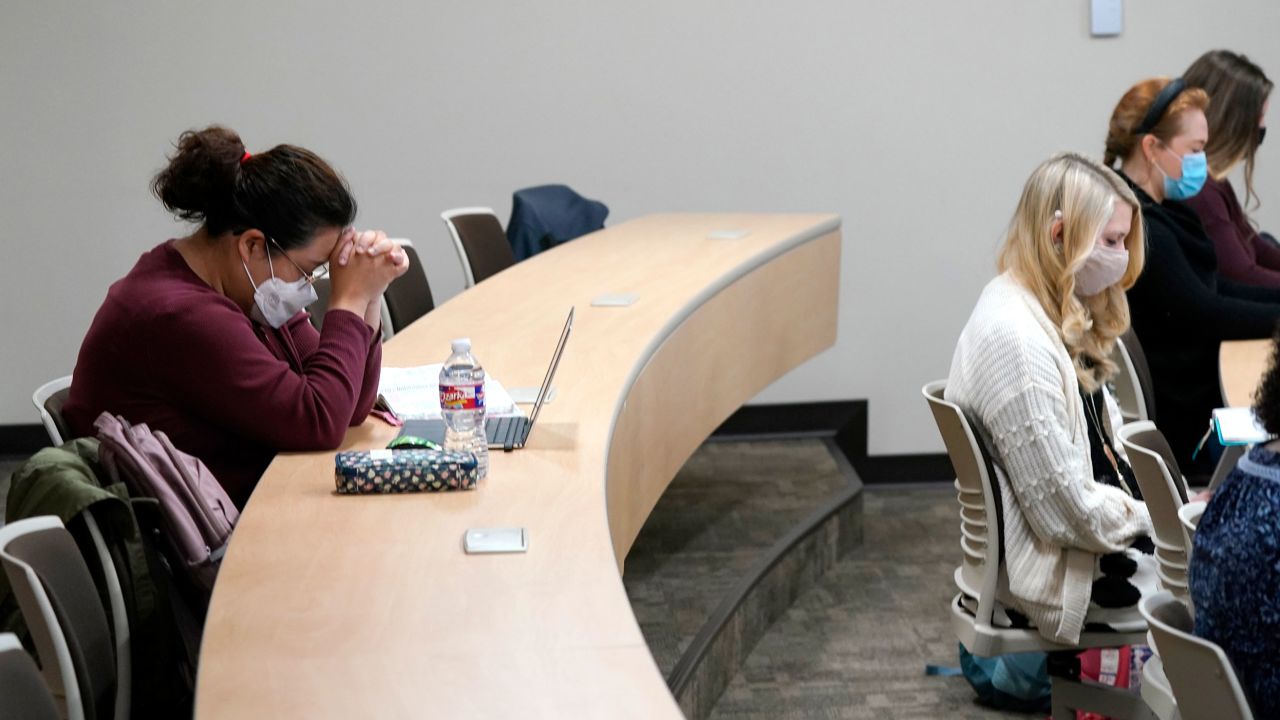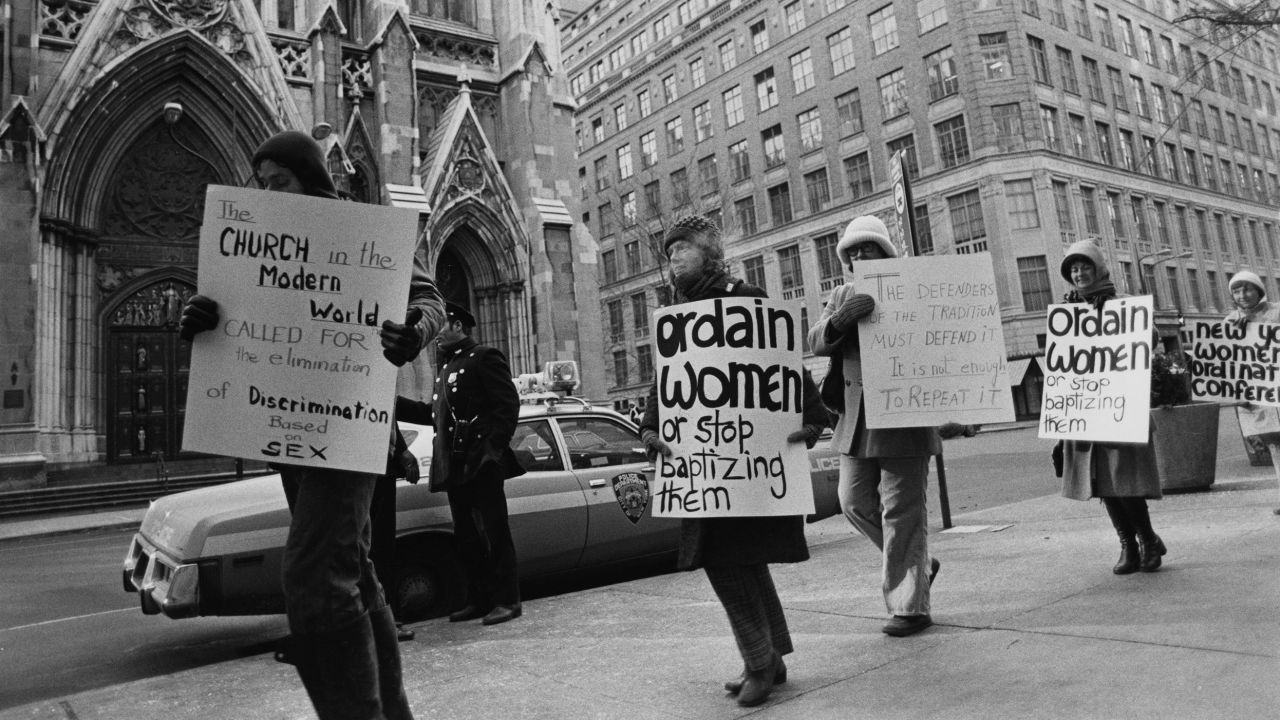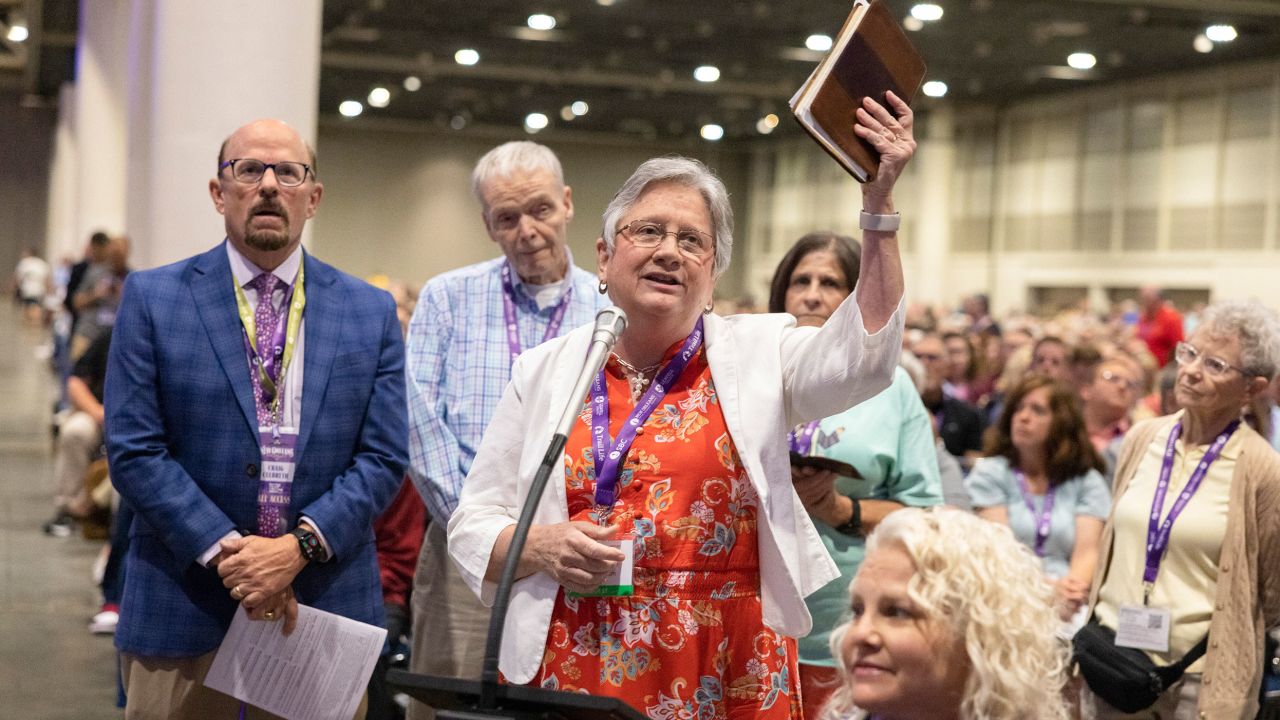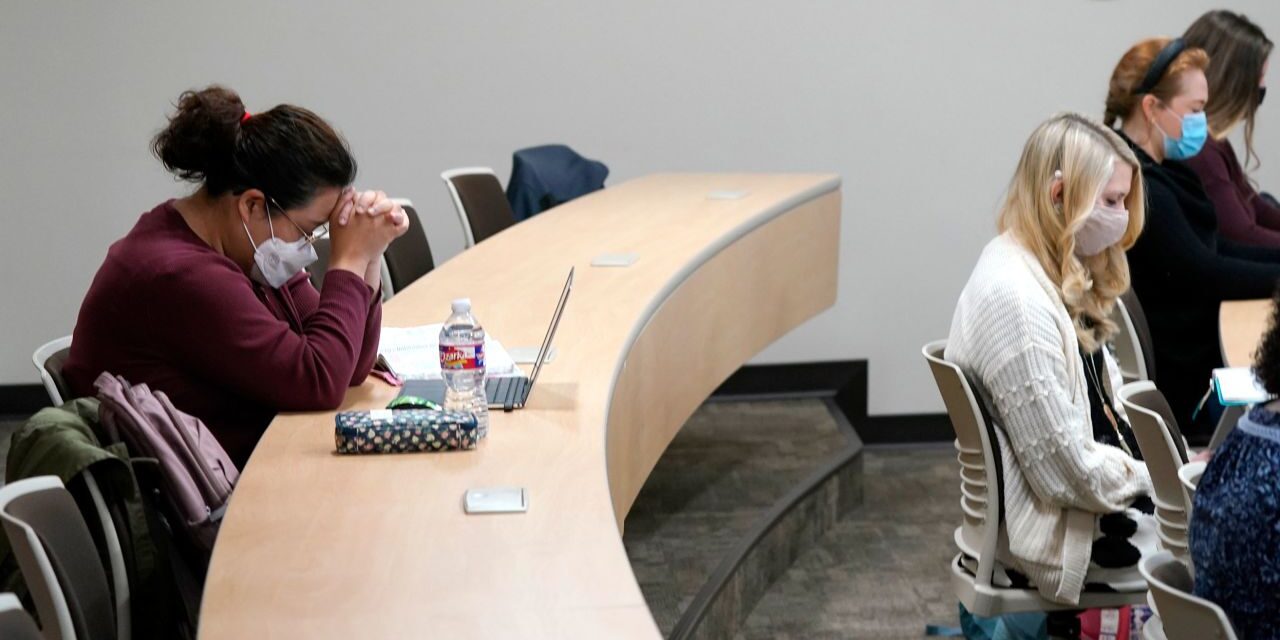CNN
—
Christian leadership in the US has typically been seen as a male occupation. The right for women to be ordained and serve as faith leaders has been hard-won over decades, and in several major factions, like the Roman Catholic and Southern Baptist churches, women are barred from the highest levels of leadership.
However, among mainstream denominations that do ordain women, a sea change is occurring. More women are entering seminary and other theological programs with the intent of becoming priests. As it follows, more women are also occupying those roles after being ordained.
Experts say one of the main reasons for the increase is that women of faith are looking at their religious traditions and sensing a need for change.
“Women — and men — in the church, have seen abuse and suffering. They’ve seen the role of the patriarchy in the church. They want to address constructively some of these challenges that have been facing both the church and in our society,” says Alexis Abernethy, chief academic officer at Fuller Theological Seminary in Pasadena, California. “They’re saying, ‘Enough of this. We need to be different.’ So I think a lot of these women are marshaling energy in that direction.”
However, female priests still face an alarming number of challenges navigating institutional structures built by and for men — challenges that are similar to those faced by women in other workplaces. These challenges also sow deep examinations of faith: If church traditions have historically marginalized women and others, what leads those who have been excluded to forge on anyway?
How the presence of women church leaders has grown

The definitions of Christian leaders, the process by which they are selected and the specific credentials needed to fill such positions vary from denomination to denomination. A church leader could be called a priest, a pastor, a rector, a minister or some other term. Ordination is the process by which someone is given the authority for these positions, and there is sometimes a hierarchy within each position. Oftentimes, training at a seminary or theological institution is necessary for ordination. This process can get a little murky with some groups that have less centralized leadership structures. However, numbers across different denominations reveal the same pattern: More women in training, more women being ordained.
Let’s look at a specific example: In the Evangelical Lutheran Church of America, a large denomination with about 4 million members in the US, 40% of the church’s pastors are women, according to a 2022 report from the church. Women also made up 46% of all bishop positions, and 54% of associate or assistant pastors (though only 22% of senior pastor positions). Across the board, these numbers marked a dramatic increase from the ELCA’s 2015 data. (The ELCA began ordaining women in 1970.)
Research from noted theologian Eileen Campbell-Reed paints a broader picture. Her 2018 report reveals the proportion of US clergy who are women rose from 2.3% in 1960 to 20.7% in 2016. She also noted most mainline denominations have seen their proportion of clergywomen rise in multiples since the early 1990s. In some denominations, like Unitarian Universalists and the United Church of Christ, the number of women in clergy positions has pulled even with men.
How women can change the church that is

Fuller Theological Seminary, where Abernethy works, is one of the largest seminaries in the US and one with a noted history of championing female faith leaders.
“The question used to be whether women should even be pastors, but that’s not as critical a question anymore in some denominations,” she tells CNN. “Now the question is, how can we make the environment in which women are pastors more fruitful, productive and supportive?”
She says having women in roles of power can help amend church structures that are inhospitable to underrepresented people and clear wider paths for acceptance and empowerment among communities.
“Power and privilege is not always a bad thing. Sometimes it can mean the opportunity to speak and share your perspective,” she says. “Folks who’ve been marginalized or oppressed, have a clearer radar regarding things like power and when it’s abusive, or when people are being excluded. At their best, they would then not set up systems that perpetuate that exclusion — although that requires courage and energy and people need to be attentive to that fact.”
When considering women in the priesthood, this history of exclusion can appear to be a major conflict. The argument against women in Christian leadership is largely based on a specific interpretation of the Bible, but even in cultures where the theology has been decided in favor of women, they still face things like lower pay, less opportunities, and inconsistent support in areas like maternity leave.
However, Abernethy says it’s because of this history that a lot of women feel called to such work.
“I’ve heard over my 25 years in this field, that women want to be a part of the movement for change. Even recognizing that they may not at this moment, or in this decade, serve in a way they want to, there are playing a role in contributing to that change,” she says. “And I have to tell you, I hear that with admiration because it really is quite a sacrifice. And yet, you understand. Because how would we have we gotten to the place we are without women, without other people, doing the same thing in the past?”
How women can create the church that will be

Emily Badgett is a fellow at Candler School of Theology at Emory University in Atlanta. A lifelong Episcopalian, Emily grew up with a supportive network of family, friends and mentors and plans to be ordained in 2024.
Whether training for a clergy role or already occupying one, community and mentorship are critical for women in the church. In Badgett’s case, these circles have also been a way to find specific purpose in faith.
“Working with my older church mentors, we often look back at the early church mothers and how, at the very beginning of Christianity, there were a lot of women doing this work,” she tells CNN. “They were community organizers. Many of them literally ran churches as administrators and secretaries.”
Badgett recalls a trip to a Tanzanian church where the women showed her what they called “trunk archives” — years and years of church records, safely tucked away in, yes, trunks.
“They were passed down from woman to woman, and we wouldn’t have that documentation without them,” she says.
In addition to shedding light on the ways women have always contributed to the church, Badgett says she also sees her contemporaries looking at priesthood as something more than a staid, traditional profession. The women in her circles see their calling as an opportunity for activism, justice and a reinvigoration of faith.
“When it comes to its social duties, the church kind of gets, in my opinion, lazy,” she says. “And when we saw the pandemic happen you saw the church kind of reinvent itself because it had gotten so comfortable in its existence.”
Activism as part of the Christian church life is not a universally recognized concept. Some communities prefer to stay out of political tides and have hesitated at formulating clear public stances on what could be considered nonreligious issues. Moments of upheaval like the racial justice movements of 2020 and the multilateral impact of the pandemic tested these outlooks. However, for many women entering religious leadership, the relationship between pastoral work and social responsibility is inextricable to their identity.
“The thing about women, and specifically women of color, is that it’s never a singular thing,” Suzie Sang, the director of the Women in Leadership Initiative at Fuller, tells CNN. “It’s always a multiplicity of things that make up their identity and their place in the world. So women and women of color have never really served just one function or one role. To them, justice and advocacy is never separate from the gospel, and it’s never separate from their theological framing.”
Today, American Christianity is in a place of crisis. Church attendance is falling, less people are identifying as Christians, and some of the religion’s biggest denominations are stuck at controversial crossroads. The Southern Baptist Convention recently expelled several women-led churches, and ousted several female leaders. The Methodist Church has been fraying over the fallout from a decision by the denomination’s international governing body to deny same-sex marriage and the ordination of LGBTQ clergy.
Sang says women who belong to faiths that don’t align with their views on how the church should be — for instance, in terms of gender outlook, face an added challenge when they feel called to the clergy.
“Women already need to make so many difficult choices when looking to seminary (or theological training). They need to think about their plans for a family, about how they will find avenues of support and success in a very difficult field,” she says. “Then, if you are part of denomination that not only doesn’t ordain women but upholds ideas of subservience, you have to say, what is the cost to me? If I feel a sense of call to seminary, will I at some point have to ask the question, ‘Can I stay with my denomination or do I need to go elsewhere?’ And if I have to go elsewhere, where do I go?”
These issues are echoed in our national dialogue, where the influence of Christianity and the rights of women are constantly at the political forefront. From the outside, one could wonder why women — or women of color, or any marginalized person — would seek to wade into such waters against the current of tradition, or of a narrow theology, or of their own upbringing. However, in the language of seminary, one doesn’t just decide to become a priest. They are called, they discern their purpose, and they feel moved to help others. They weigh a lot of heavy decision in the balance. If they decide to seek leadership in spite of prejudice and uncertainty, it’s not because they think their religion is perfect. It’s because they can see the good in it, and hope they can make it better.
“The church is not perfect, it’s not a heaven. It is a human institution trying to do the will of God and that means we’re going to fail,” Badgett says. “And that means the church is not always going to get things right. Even in the Bible, there were people who got things wrong. The whole point is people are redeemable. And the church is a redeemable place.”




